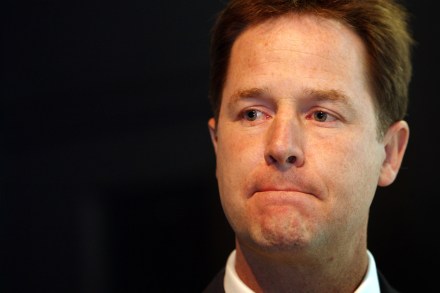Clegg rebukes French PM
Normally, ‘read-outs’ on telephone calls between members of the British government and their counterparts overseas are fairly bland affairs. But today’s one on a conversation between Nick Clegg and the French Prime Minister Francois Fillon is an exception to this rule. Clegg, we are told, informed the French PM that ‘that recent remarks from members of the French Government about the UK economy were simply unacceptable and that steps should be taken to calm the rhetoric.’ To be sure, there is some more diplomatic language before and after this (the full text is at the bottom of this post) but the willingness of the deputy Prime Minister to be quite















